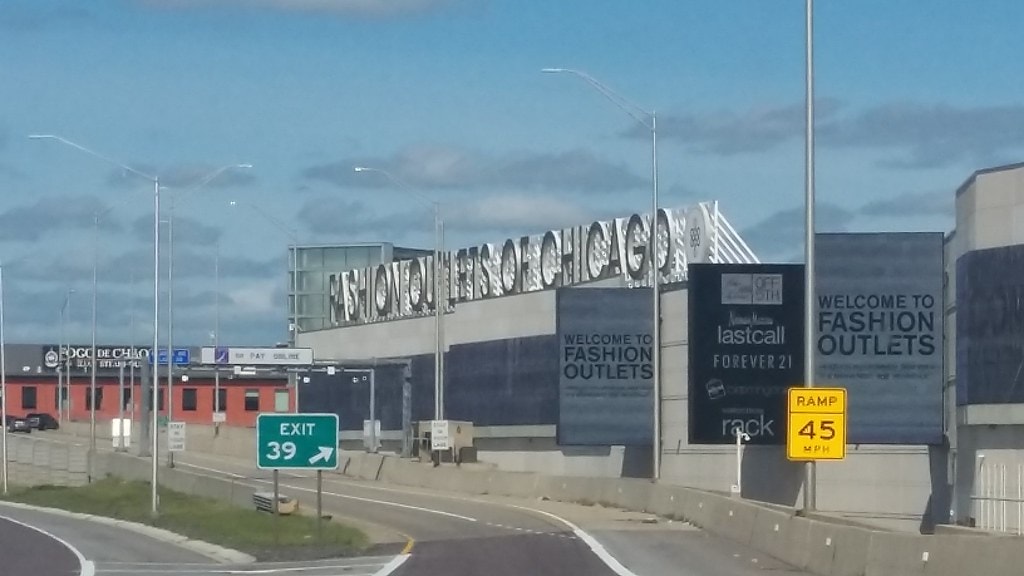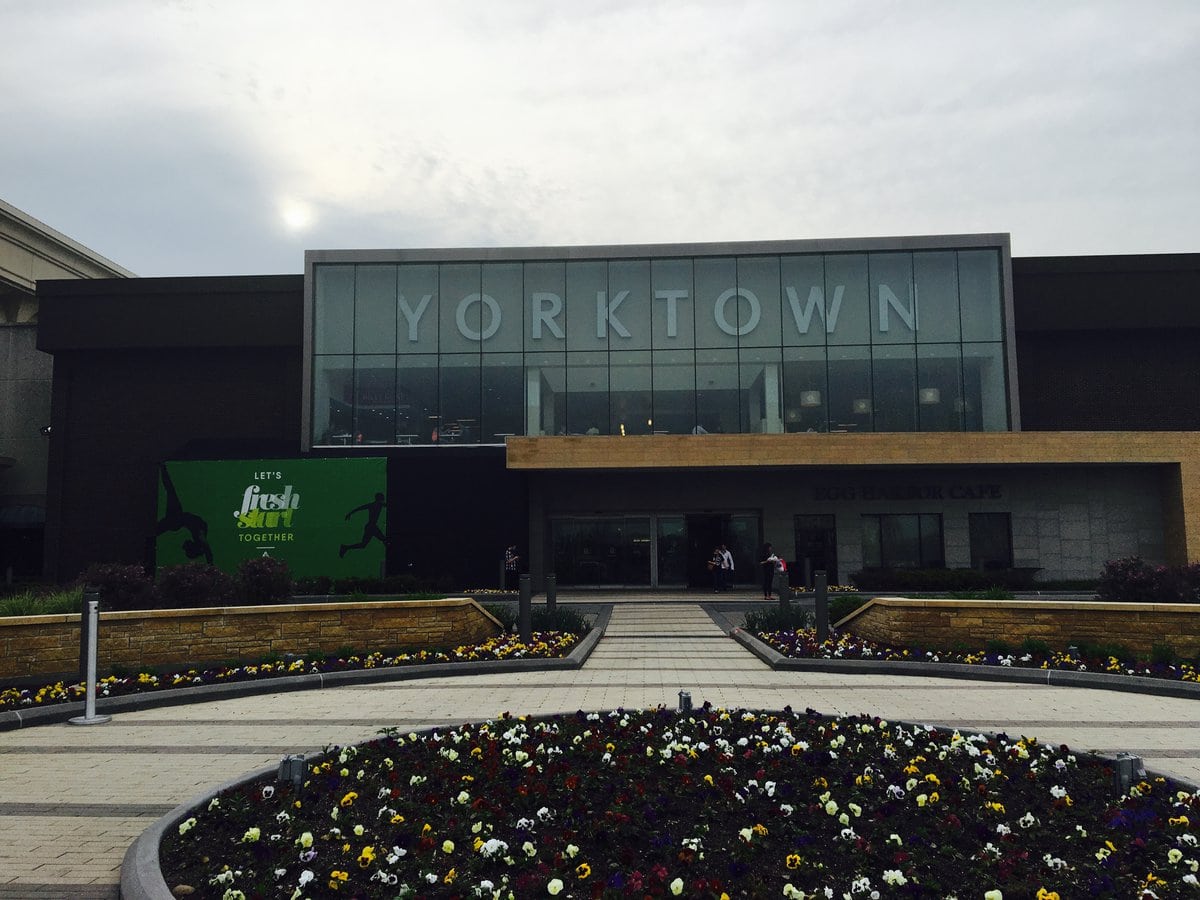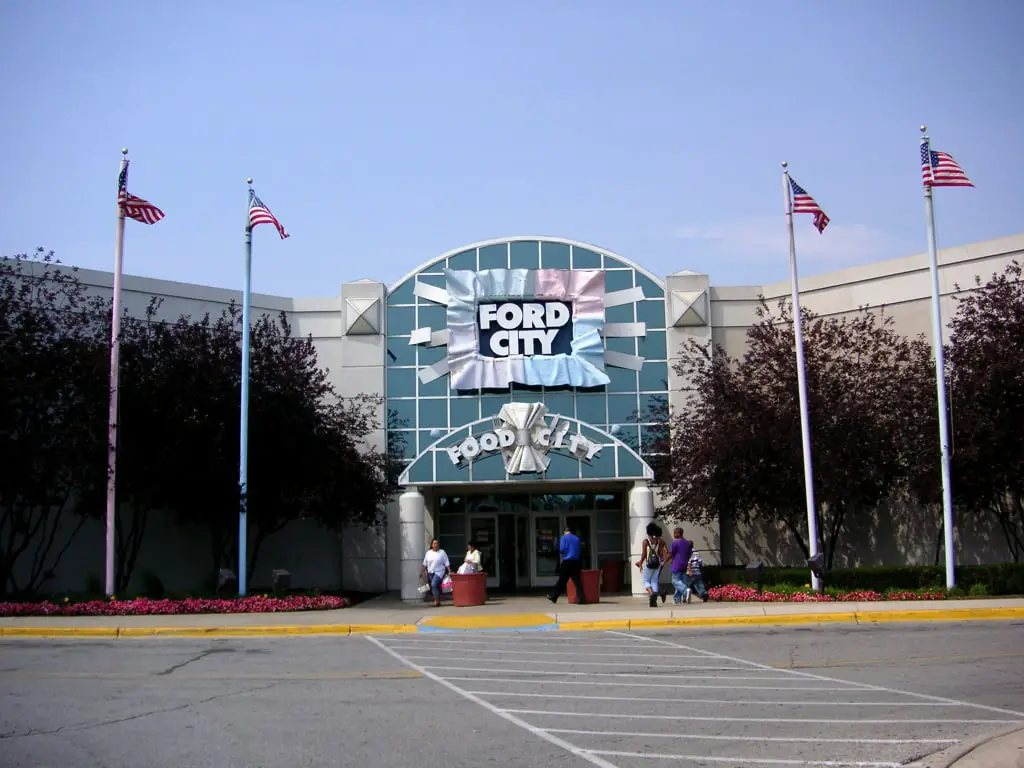Brick, Glass, and the Rules Beneath
Just off 111th Street, past the wide footprint of the Pullman grounds, the red brick of Hotel Florence still catches the light in a way that makes you pause. It doesn’t tower, but it lingers: four stories, limestone trim, mansard roofline keeping its shape through decades of pause.
The carved balconies and narrow arched windows speak more to habit than grandeur. This was a building made to behave – a place for salesmen with schedules, not wanderers with leisure.
Hotel Florence is part of the things to do in Chicago, Illinois, that push memory into the foreground without trying too hard.
The building’s name still sits over the entrance, even as restoration work continues inside. What remains visible hasn’t been scrubbed or staged; it’s part of what makes the place harder to forget.
Built for the Guest, Never the Worker
George Pullman didn’t build Hotel Florence for comfort. He built it for control. The 50-room structure, completed in 1881 for $100,000, wasn’t meant for his laborers.
It stood apart from the worker housing and sat near the industrial center, clearly aligned with another set of priorities.
The hotel officially opened on November 1 of that year. Pullman named it after his eldest daughter, Florence.
The architect, Solon Spencer Beman, followed Pullman’s request for a formal but restrained design. The building rose on company land at 11111 South Forrestville Avenue.
Its guests arrived on business. They were executives, contract suppliers, and salesmen tied to the railroad economy.
Room reservations weren’t open to the public; they moved through company channels.
Pullman employees weren’t eligible. Workers lived nearby but weren’t allowed inside. The doors weren’t for them. At the same time, the hotel bar poured whiskey without restriction.
It was an exception written into policy, serving those George Pullman viewed as responsible enough to handle it. Elsewhere in town, liquor was banned.
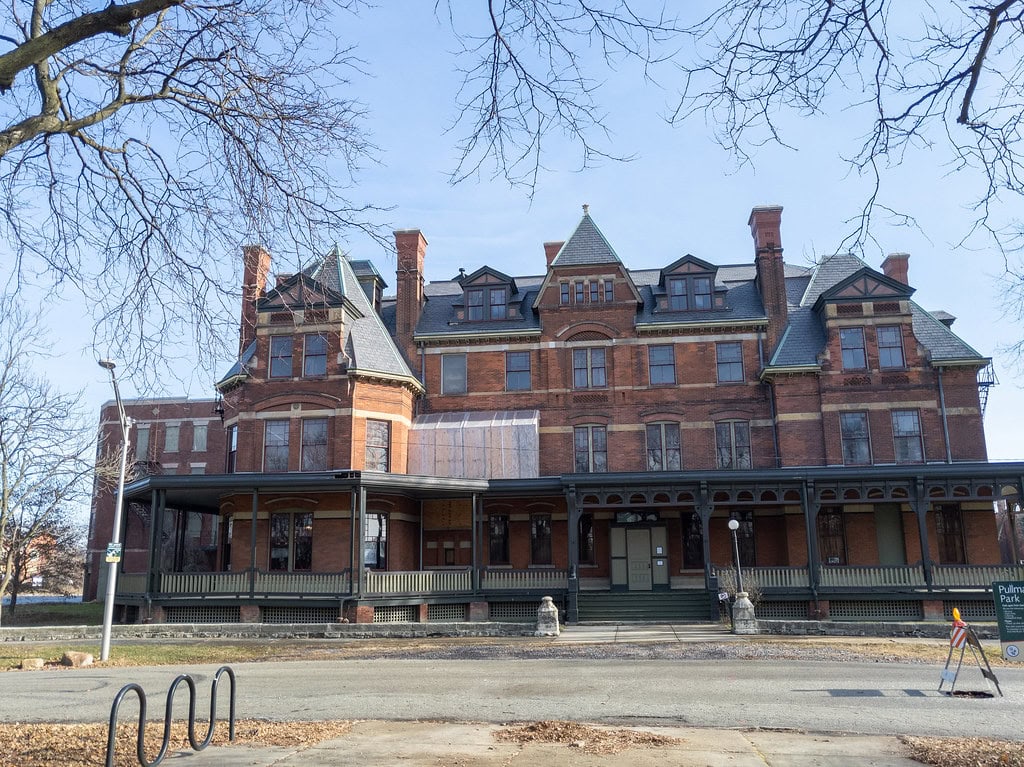
Behind the Walls of a Gilded Monument
Solon Beman’s design for Hotel Florence followed Gothic Revival conventions but didn’t overreach. The hotel’s massing relied on rhythm and order, brick walls, limestone trim, and a steep mansard roof pulled from French Second Empire styling.
Windows formed tall, arched pairs across the front. Balconies punctuated the upper floors, reserved for the guests who were never expected to stay long.
Inside, the Pullman Suite occupied the most private section of the top floor. That suite wasn’t available for booking. It was reserved exclusively for the Pullman family when visiting the town, complete with its staircase and parlor.
The rest of the hotel was equipped for company use: solid wood furniture, a polished dining room, and service staff drawn from outside the town’s employee base.
By 1883, the railroads using Pullman cars included the Pennsylvania Railroad, the New York Central, and the Southern Pacific.
Their executives were among the guests. And their vendors came in with iron castings, fine upholstery, brasswork, and contracts for continued supply.
The hotel functioned as an extension of the office, just one with velvet chairs and whiskey on the table.
Annexed and Strained – Municipal Pressure Meets Company Order
Chicago annexed Pullman in 1889, absorbing the company town into its jurisdiction and stripping back some of George Pullman’s control over daily operations.
City ordinances now applied to streets that had once followed factory rules. Hotel Florence stood unchanged, but its context had shifted. The friction was immediate.
Five years later, in May 1894, Pullman workers went on strike. The walkout wasn’t isolated for long.
The American Railway Union, under Eugene Debs, urged a boycott of all trains pulling Pullman cars. Rail traffic slowed across multiple states. By July, federal troops had entered the scene.
Protests turned volatile.
George Pullman passed in 1897. Robert Todd Lincoln took over as company president. Under his watch, the hotel remained in use and expanded.
Around the early 1910s, a large annex was added to the original structure. The extension reflected continued growth in the sleeping car trade, but also hinted at the new scale of corporate travel.
The original building still served its function, but the footprint of the company hospitality had gotten wider.
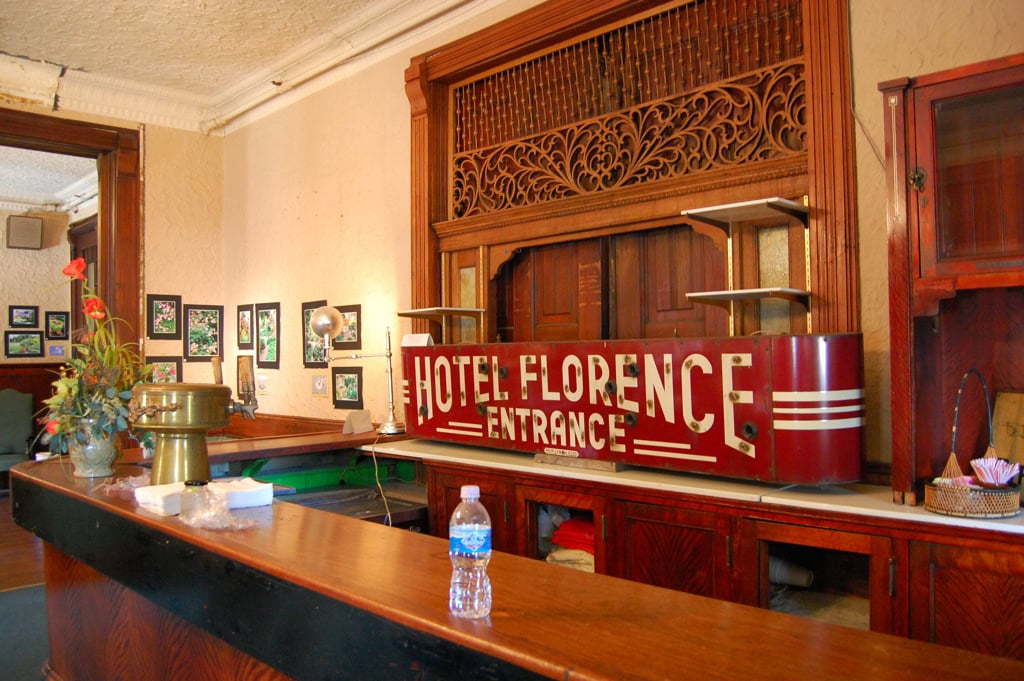
Trains Thin Out, and the Ledger Shifts
By the 1920s, railroads were starting to lose ground to the automobile. That shift came slowly at first, but by mid-century, it was no longer possible to ignore.
Fewer overnight trains meant fewer guests with rail ties. The Pullman Company still manufactured and maintained sleeping cars, but travel behavior had changed.
Hotel Florence had no shortage of charm, but less traffic.
Through the 1950s and into the 1960s, Pullman’s grip on the sleeping car business continued to weaken. Airlines and personal vehicles cut deeply into the night-train model that once required so many contracts and face-to-face deals.
In 1971, Amtrak absorbed most of the remaining passenger rail routes from private operators. That year marked a clear line: rail hospitality, at least in the old form, had moved on.
The Florence Hotel didn’t vanish. It just no longer sat at the center of a working business strategy. In 1975, the Historic Pullman Foundation stepped in and purchased the building.
Preservation became the goal. The bar closed. The rooms went dark. What remained was the structure itself, and the record of what had passed through it.
By 1991, the Illinois Historic Preservation Agency had taken ownership.
Preservation of the Ledger – Buyers, Foundations, and State Deeds
In 1969, Hotel Florence was added to the National Register of Historic Places as part of the Pullman Historic District.
That designation didn’t stop deterioration, but it kept the building visible to planners and preservation groups who understood what was at stake.
The Historic Pullman Foundation ran tours. Volunteers scrubbed floors. Interpretive signs appeared inside. Still, it wasn’t a full revival.
The money came slowly, and conditions inside the hotel limited access. Rooms were occasionally opened to the public, but most remained off-limits.
That changed in 1991 when the Illinois Historic Preservation Agency acquired full ownership. With it came new control and state-level funding – enough to plan for long-term conservation but not always enough to act.
The structure, now managed as an Illinois State Historic Site, kept its footprint. No major alterations were made. The annex from the 1910s remained connected.
Furniture, light fixtures, and woodwork were documented and stored. Decades passed, and although the building stayed in public hands, it sat largely unused, its purpose suspended between museum piece and future project.
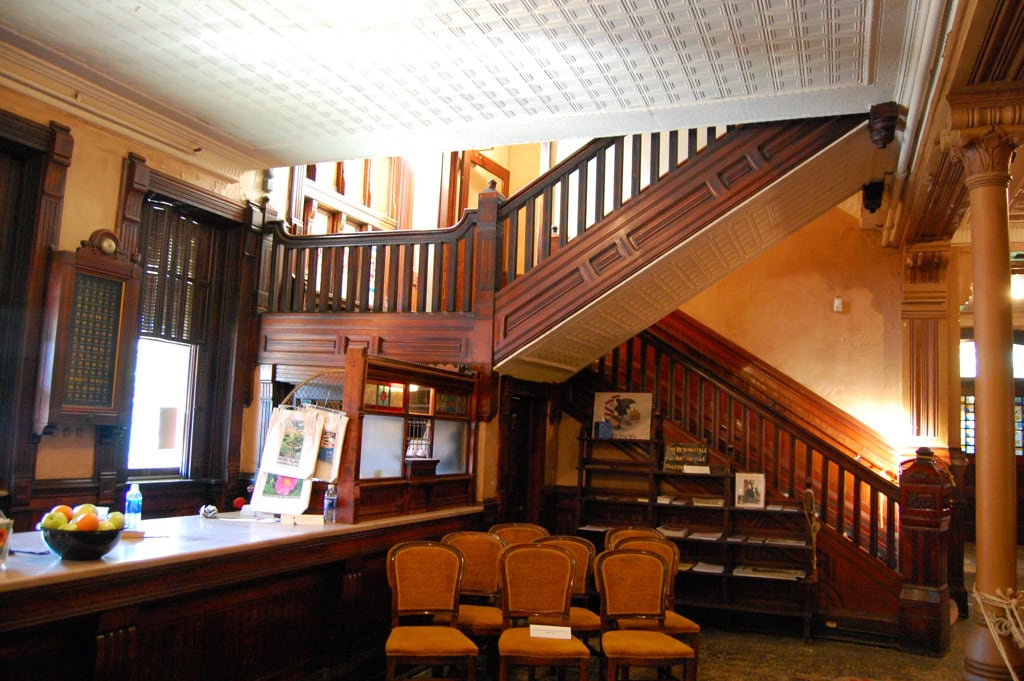
New Bids, Long Horizons – The 2025 Development Push
On March 10, 2025, the State of Illinois announced $21 million in funding aimed at revitalizing the Hotel Florence and several adjacent Pullman properties.
The announcement included the 1914 annex and a historic railcar linked to Robert Todd Lincoln. The goal wasn’t to operate a museum. It was to find a long-term developer to lease, restore, and reopen the hotel under a 75-year agreement.
A formal Request for Solicitation followed on April 1. The Illinois Department of Natural Resources set a July 9 deadline for proposals. Attendance at an April 16 pre-bid meeting and walkthroughs later that month was mandatory.
Any bidder would have to meet preservation standards, complete accessibility upgrades, and maintain the building’s historic character while reintroducing commercial use.
Interest in the area had already started to grow. A permit issued April 29 for a four-story hotel near 111th Street and Doty Avenue pointed to broader development interest near Pullman National Monument.
State officials outlined a timeline aiming for selection by September 2025.
Whether bidders propose hospitality, education, or mixed-use concepts, the core requirement is the same: Hotel Florence must reopen as a revenue-generating space without losing the historic fabric that kept it intact all these years.
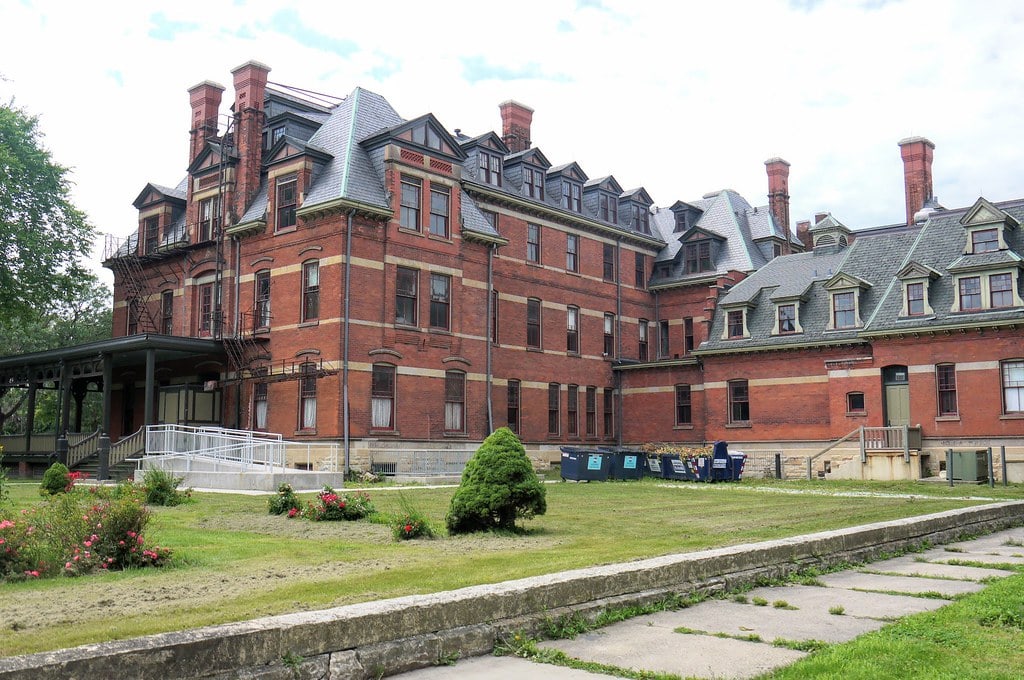
🍀

